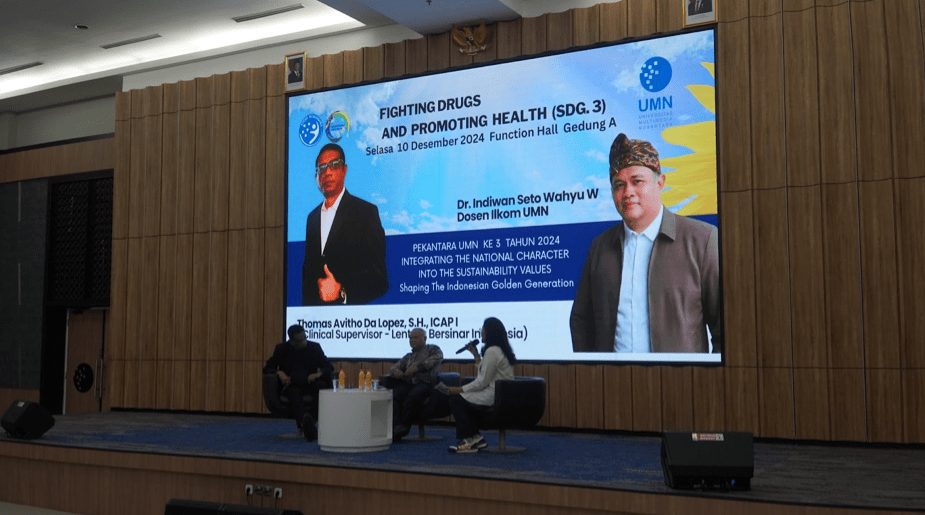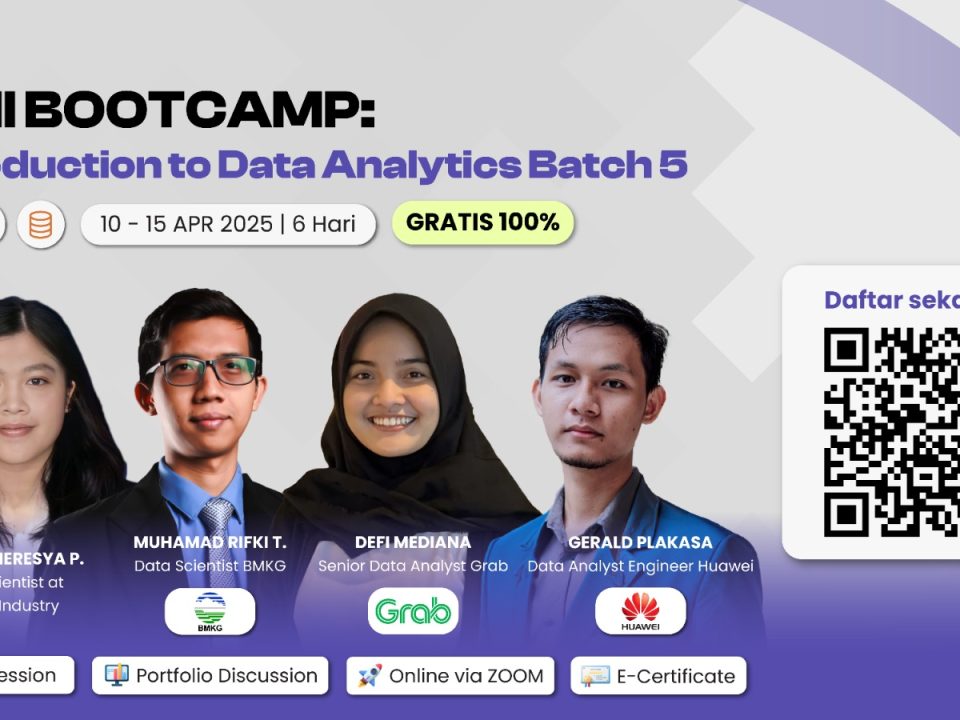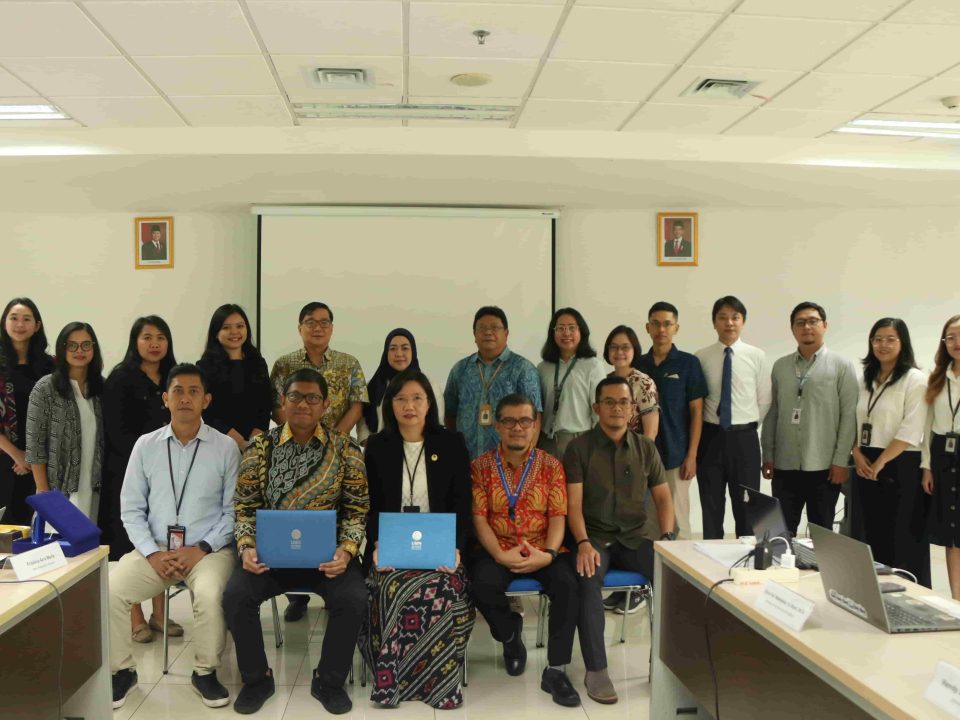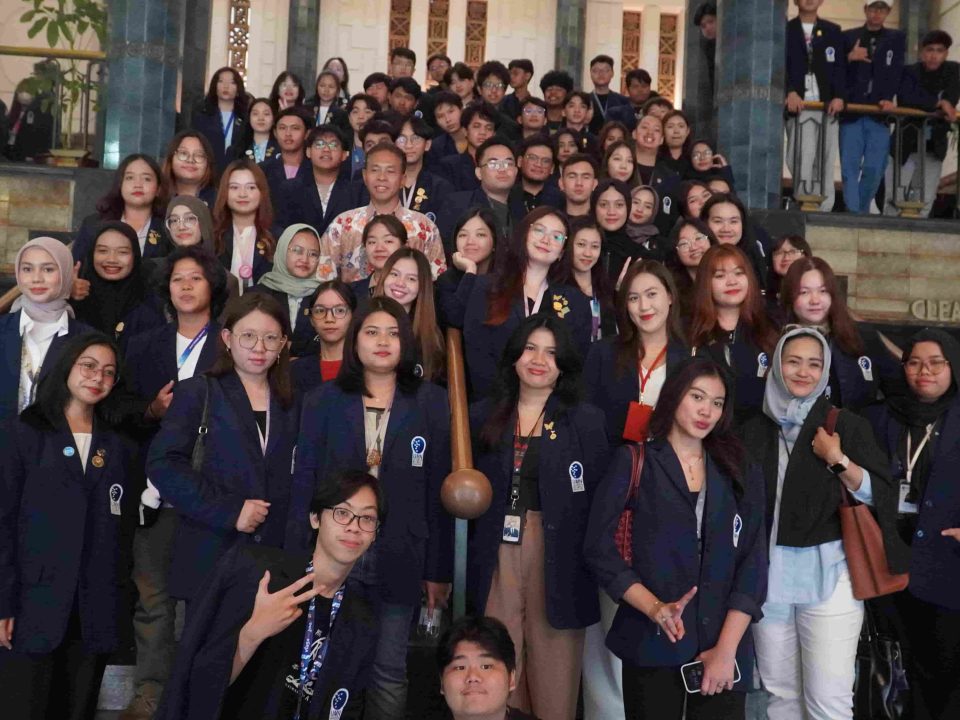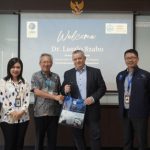
UMN Collaborates with Dennis Gabor University, Hungary
December 13, 2024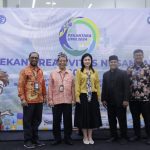
UMN Archipelago Creativity Week 2024
December 14, 2024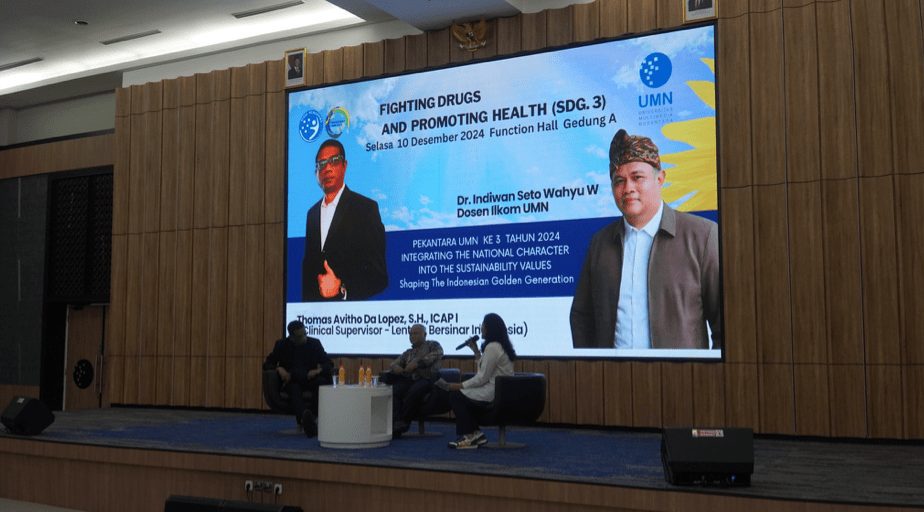
The second day of the Pekantara seminar by Thomas and Indiwan (Doc. UMN)
Tangerang – The second day of Pekantara UMN was held on (10/12/2024). On the second day, Pekantara UMN also held a seminar that discussed the dangers of drugs and the role of technology in fighting drugs. The seminar materials were presented by Thomas Avitho Da Lopez, S.H., ICAP I, Clinical Supervisor at Lentera Bersinar Indonesia and Dr. Indiwan Seto Wahyu W, UMN Faculty of Communication Sciences Lecturer.
The second day of Pekantara educated students about drugs and the dangers of narcotics itself. The first presentation was presented by Thomas, who discussed drugs and other addictive substances. This seminar is expected to make students more aware of the dangers of drugs and give tips on how to overcome problems or good mental health.
“According to WHO, drugs are a chronic brain disease, incurable but recoverable. Drugs may come from plants and chemicals. Of course, the consequences of drugs are the disruption to thinking and consciousness and can cause addiction,” Thomas said.
According to Thomas, if someone has used narcotics, there is definitely a disturbance in the nerves of the brain. Thomas also explained the various kinds of drugs that exist, such as marijuana, LSD, cocaine, ecstasy, and many more. There are also other addictions explained by Thomas, namely alcohol, tobacco, and other chemicals that are inhaled.
“There are many reasons why people use drugs. For example, nowadays, many people who self-diagnose mental health from the internet alone end up using tranquilizers and become addicted. It’s better to go to professionals who really know and are experts,” Thomas continued.
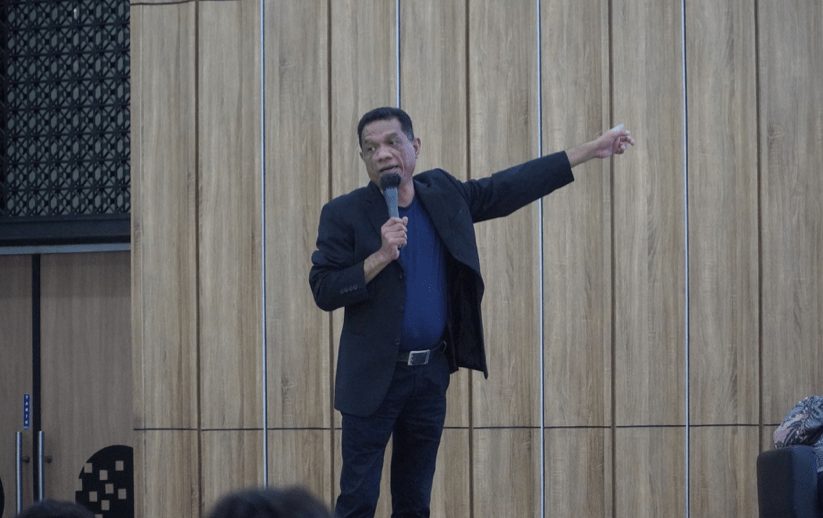
Material presentation by Thomas. (Doc. UMN)
Thomas also explained the stages of someone becoming addicted to drugs. Starting from curiosity, social users, situational users, intensive users, and ending up addicted to drugs.
“Drugs have been regulated by the law. For me, if the law has regulated it, there is no need to be against the law. Avoid drugs because drugs are dangerous, and the side effects are horrible,” Thomas concluded.
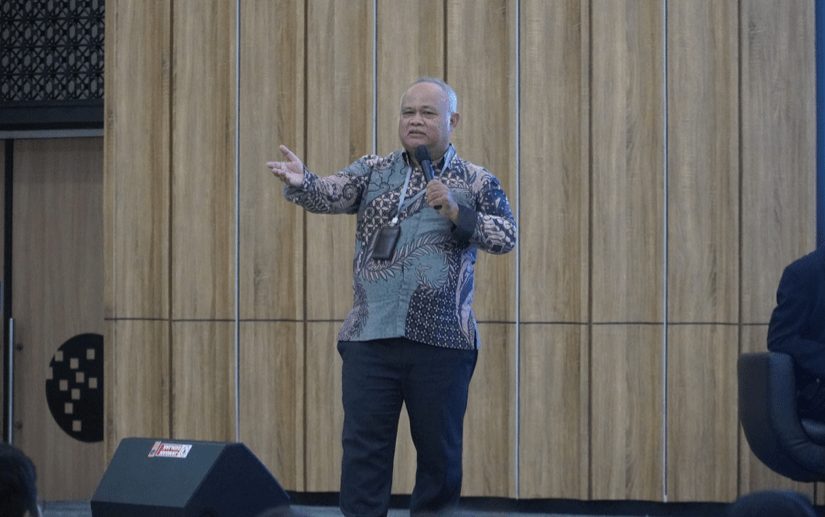
Material presentation by Indiwan (Dok. UMN)
Indiwan continued the seminar by discussing the role of AI (artificial intelligence) in fighting narcotics and how AI is one technology that helps health workers and the public reduce drug use.
“AI can support reducing or detecting drug users. First, the accessibility of AI is easy to access, and drug users can get help, AI users do not need to reveal their identity, and it is also affordable,” Indiwan said.
According to Indiwan, AI can help speed up the diagnosis of drug users. It can also monitor and provide rehabilitation treatment. Of course, with the help of technology, it will also be more efficient.
“If you are sad or stressed, find a friend to talk to. Even now, AI can be a friend and listen to your stories. It can provide distraction and entertainment,” Indiwan concluded.
By Rachel Tiffany Tanukusuma | UMN News Service
English translation by Levina Chrestella Theodora
Kuliah di Jakarta untuk jurusan program studi Informatika| Sistem Informasi | Teknik Komputer | Teknik Elektro | Teknik Fisika | Akuntansi | Manajemen| Komunikasi Strategis | Jurnalistik | Desain Komunikasi Visual | Film dan Animasi | Arsitektur | D3 Perhotelan , di Universitas Multimedia Nusantara. www.umn.ac.id

